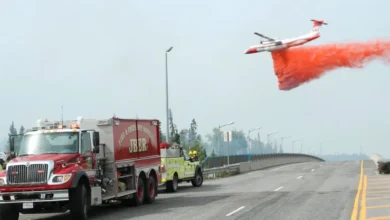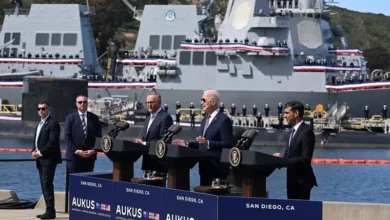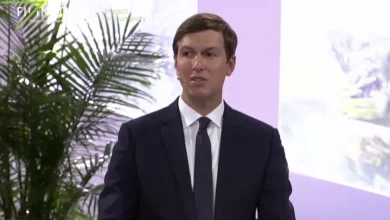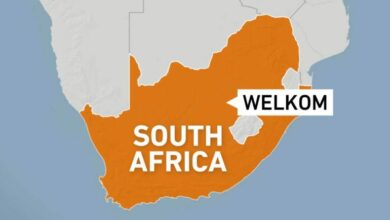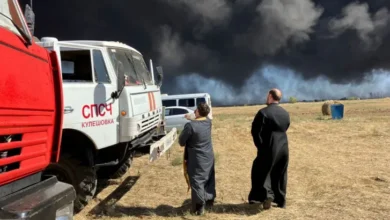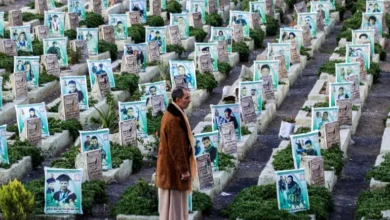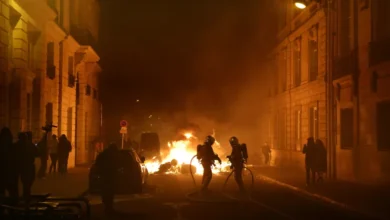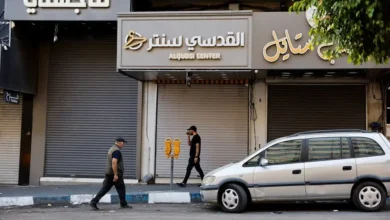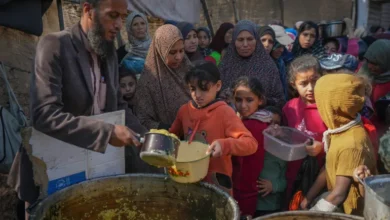Israeli protesters keep pressure on Netanyahu over judicial overhaul
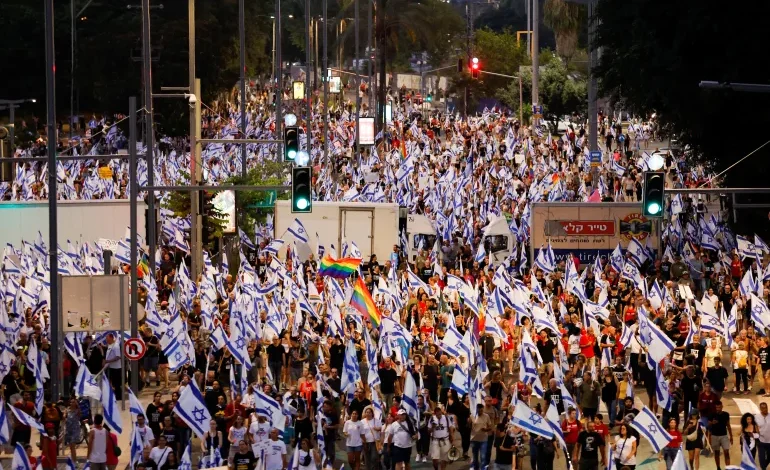
Tens of thousands of flag-waving Israelis have staged new nationwide protests days after Prime Minister Benjamin Netanyahu pushed through a highly-contested law that limited some Supreme Court powers.
Protesters beating drums and blaring horns took to the streets in cities including northern Galilee and central Tel Aviv for the 30th consecutive week on Saturday, in a show of opposition towards the judicial overhaul.The first part of Netanyahu’s reform package, which has become known as the “reasonableness clause” bill, was ratified by the Knesset – Israel’s parliament – on Monday sparking an unprecedented crisis and opening up a deep social divide.
Political watchdog groups have appealed to the Supreme Court to strike down Monday’s bill, which removes the high court’s authority to void what it deems “unreasonable” decisions by government.
The court said it would hear arguments in September, setting the scene for a constitutional showdown.
Al Jazeera’s Bernard Smith, reporting from Tel Aviv, said protests on Saturday had been organised across 150 towns and cities “so people don’t necessarily have to converge to Tel Aviv or Jerusalem”.
Protesters have been keeping up the pressure on the government to prevent additional plans for reform that could be pushed forward after parliament’s summer recess.
They include major changes to laws shaping the balance of power between the Knesset and the High Court of Justice, splitting the attorney general’s role and limiting the ability to petition against government actions.
Critics have said Netanyahu is threatening Israel’s democratic principles and independence of the courts, possibly with an eye to a corruption case he is facing.After his stunning success in the 2022 elections, Netanyahu formed a coalition with several far-right parties that have a long history of using incendiary rhetoric against Palestinians, oppose Palestinian statehood and support extending Israeli control over the occupied West Bank.
Israel has occupied the West Bank since the 1967 Middle East war and has since pursued a programme of expanding illegal, Jewish-only settlements in the territory. The Palestinians want the West Bank to form part of a future state, with East Jerusalem as its capital.
Critics have said that the Israeli government’s policies in the occupied West Bank could cause a security escalation there.
Last year was the deadliest for Palestinians in the West Bank since the United Nations began keeping track of fatalities in 2005, with 150 people killed, including 33 minors. Officials have warned that 2023 was likely to see a higher number of fatalities.

